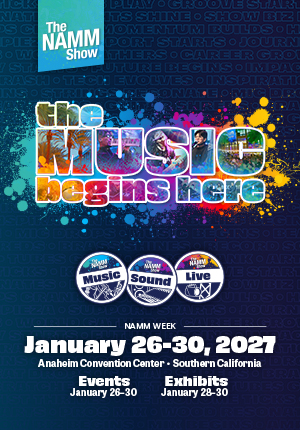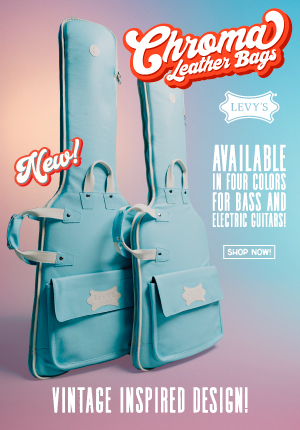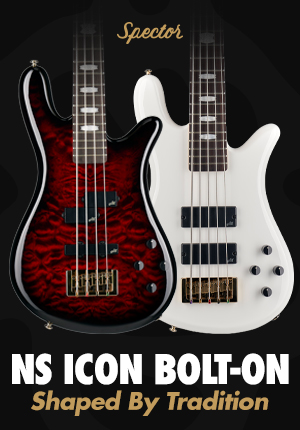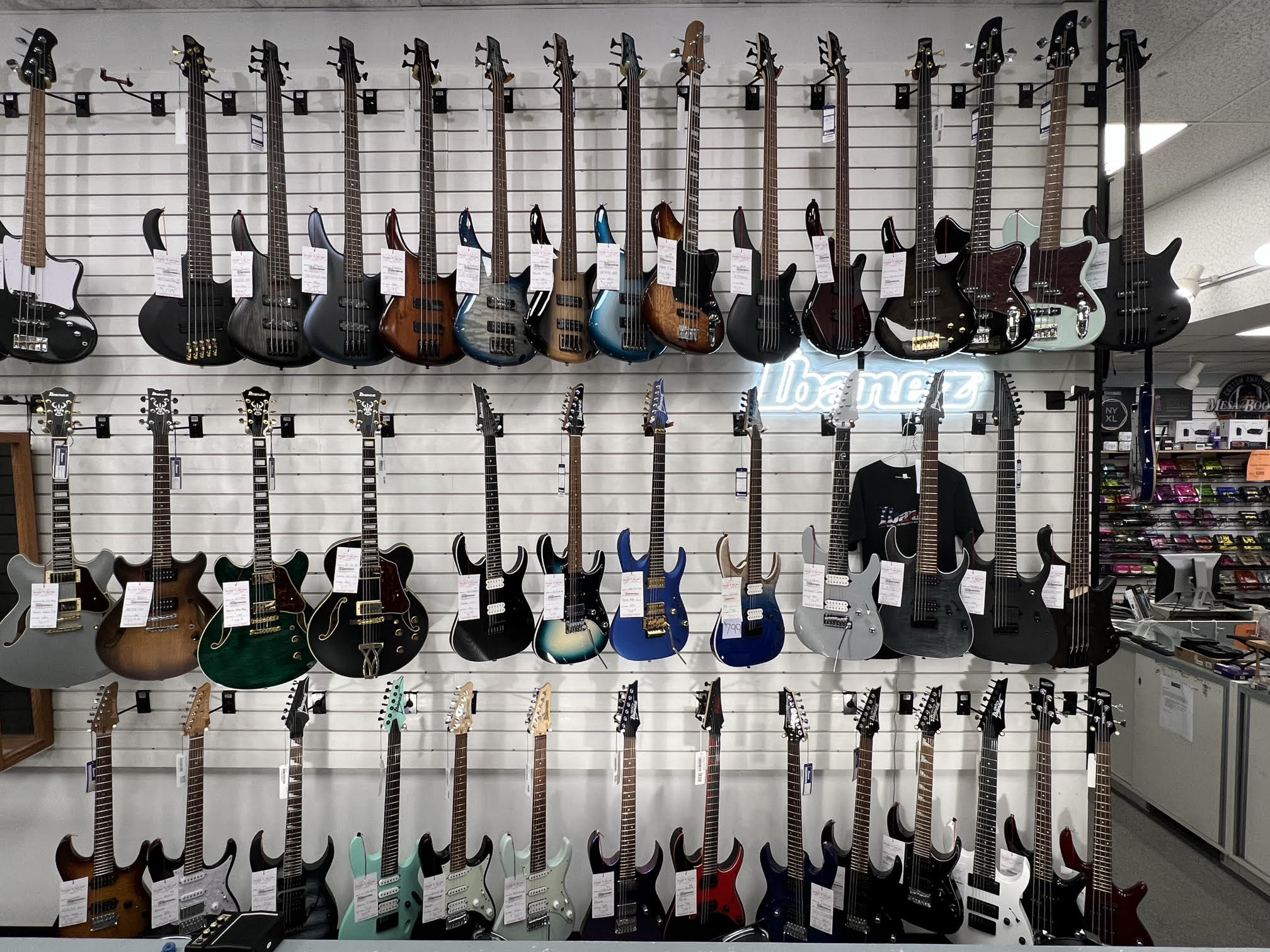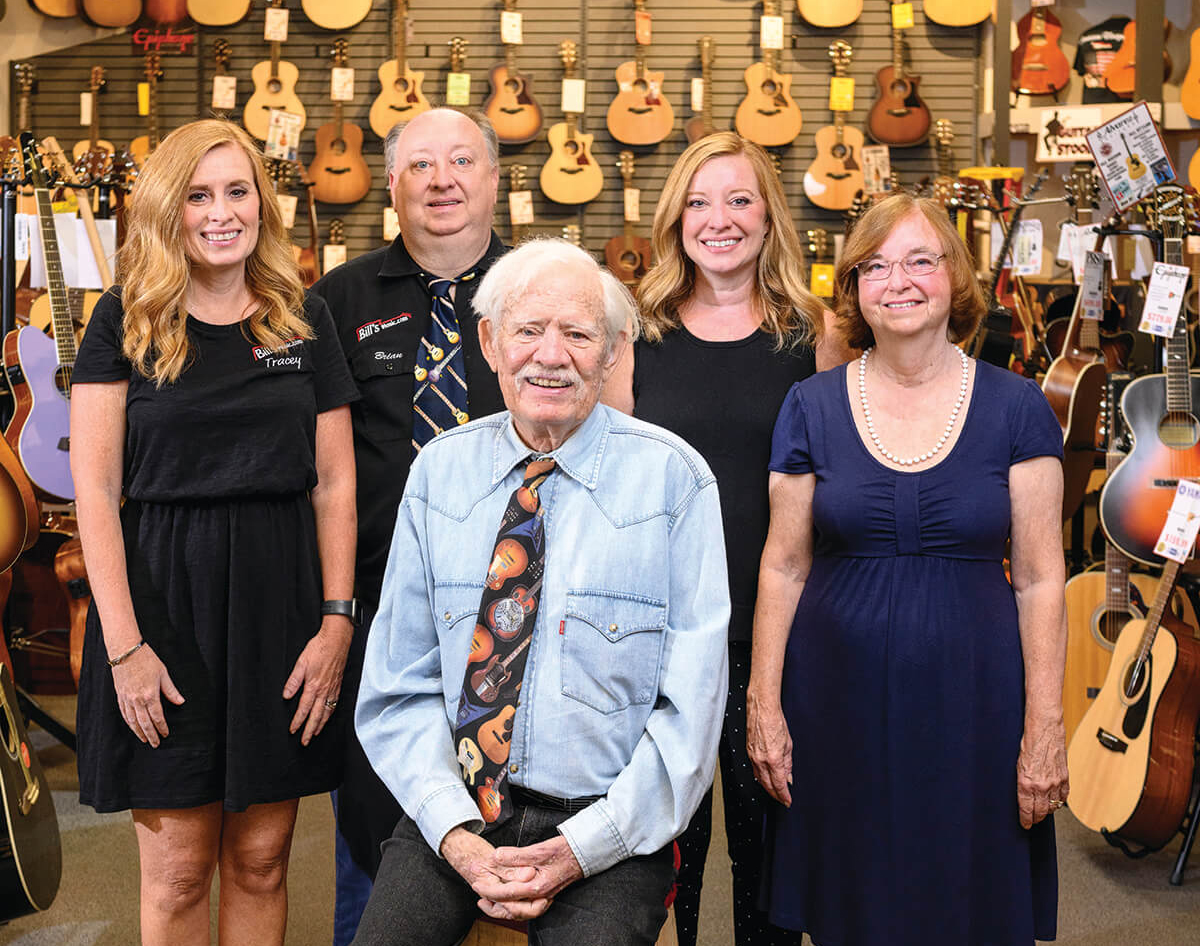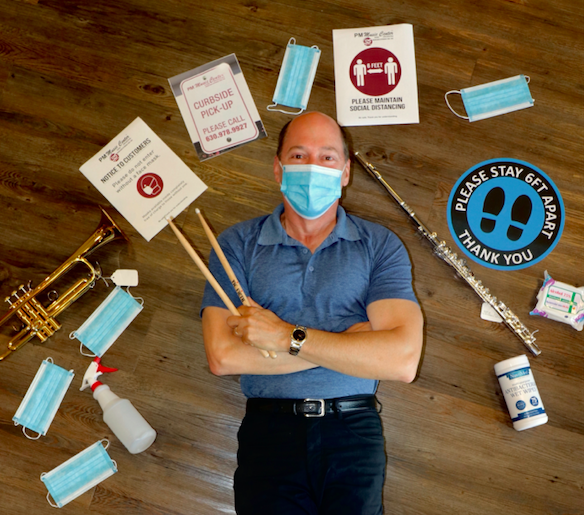
PM Music Center's Frank Pampenella
When PM Music Center in Aurora, Illinois, closed its doors due to the coronavirus on March 23, the dealer was seeing its best year ever. Numbers were up, and a seemly promising fall rental season was around the corner. But, COVID-19 closures didn’t just disrupt sales, they disrupted the store’s entire rental process.
In March, President Frank Pampenella and his team were left to figure out how to get some 1,500 rental and school repair instruments currently out with students back to the dealership efficiently but, most importantly, safely.
“We moved quickly, but cautiously, and we erred on the side of being overly safe,” Pampenella said. “We explained to parents and directors that we would be able to pick up returns through designated pickup points and told them that we’d be in a certain school’s parking lot on a certain day between 10 a.m. to 2 p.m. If someone emailed that they wanted to return their instrument, we let them know about all the designated areas we had, and they could choose whichever location they wanted.”
Pampenella said the system worked well, and the various protocols they put in place helped everyone feel safe.
“We had them place the instrument on a table outside of our truck,” he said. “Once they left, we would come out, pick up the instrument and sanitize the case and the table while wearing a mask, so the process was very safe for everyone.”
This nimble, thinking-on-its-feet mentality has been normal for PM Music Center, as it has now headed into a new school year where it is seeing most of the some 300 schools it services in Northern Illinois return to classes remotely. As a result, Pampenella said he is seeing many schools holding off on starting first-time band and orchestra students.
“Most of the schools aren’t starting beginners at all, but of the programs that are, we saw one school [that] normally starts 140 kids only start 30,” Pampenella said. “I would say most programs are down 60 to 80% all the way to 100% because a lot aren’t starting beginning programs at all. Unfortunately, beginners are where almost all our rental instruments go.”
One silver lining has come in the form of second- and third-year rental students, who Pampenella said will be continuing their lessons virtually this year.
“Teachers can teach students who have already played before online — it’s much easier than instructing a beginner online,” Pampenella said. “So, if they have gotten past the beginner stage, we are seeing those kids learning virtually, and we have been able to hang onto those rentals.”
A Stable Step-Up Market
Each May, PM Music Center holds a one-day sale for step-up instruments, which is one of its largest revenue days. However, when the store was closed on this year’s date, Pampenella decided to hold the sale with the same discounts across the entire month of June.
“It ended up being our best June for step-up instruments ever,” he said. “It worked out really well, and by keeping it spread out throughout the entire month, it helped us keep customers socially distanced while they shopped and gave them a larger window of opportunity to purchase those instruments.”
Months later, PM Music Center is still seeing strong interest from step-up customers looking to try out new instruments. In response to the demand, the store has put special safety measures into place for trying out step-ups.
“We’ve been doing appointments for step-up tryouts, and when we had our step-up sale in June, we had an almost 100% close rate. It was amazing,” Pampenella said. “I think it was successful because we have a more serious customer when they make an appointment.”
Before a customer stops in, the PM Music team tries to limit the number of instruments a player tests by asking a series of questions up front.
“We narrow down the top three instruments,” he said. “That way we don’t have to go through a whole wall of trumpets.”
Players try the instruments in a special 25-by-18-foot room, and, once finished, the instruments are wiped down and put into a 24-hour “quarantine” hold before someone else can try them out.
“We put a 24-hour hold tag on them so we know we still have that instrument in stock, but no one plays it until the time is up,” Pampenella explained.
Adapting the In-Store Experience
These enhanced safety precautions have extended to the rest of the showroom as well.
From placing social distancing reminders on the floor and using rope to direct traffic to building his own plexiglass shields for the check stand and enhancing cleaning procedures throughout the showroom, Pampenella said being overly careful has created a more trusting customer.
“A lot of stores I’ve been to during the pandemic handle their safety precautions in a way that I think sometimes scares the customer or looks janky,” Pampenella said. “Whether it be using tape to mark X’s on the floor that serve as social distance reminders or handwritten, brash signage, it makes the customer feel like maybe they are in danger by entering the store. So, the approach we took was to go to a local sign shop and get stickers printed up for our floor and put reminder signs in frames that still get the point across but do so in a way that wasn’t half-hearted or scary.
“We always tell our customers, ‘We are smiling under our masks,’” Pampenella said. “We want our customers to know that it’s safe and to come on in, we’re happy to have them.”
When it comes to its lessons business, as of late August, PM Music Center was seeing only about six teachers continuing in-store lessons. Those in-person teaching rooms are now divided in half by a clear shower curtain, which Pampenella dubs the store’s “biohazard shields,” separating the student from the teacher. Where PM Music used to see 400 students come in per week, he said it is now down to about 20 students and “room rent” from the store’s teachers is down about 60%.
One surprising turn of events, however, has been a stark rise in guitar and keyboard sales.
“That’s usually a very small part of our business, but we’ve actually almost sold out of all of our keyboards and are having trouble getting more,” Pampenella said. “Maybe that’s because a lot of other dealers are out of stock or maybe it’s because more people are bored at home looking for something to do. We’re not normally the first place customers think of when they are looking for a keyboard since we specialize in B&O. Usually we sell a keyboard or two a month, but during this time we were selling a couple a day.”
Looking to 2021
While Pampenella said his dealership is going to be “missing out on thousands of rentals this year,” he is hopeful for next year.
“I think business [is] going to be very strong next year. In some cases, we have directors [who] are going to be starting two classes — students that would have started this year, plus next year’s first-time students.”
He also referenced the B&O market’s stability during unsettling times.
“We’ve gone through a number of recessions,” he said. “When we started the business back in the 1980s, school music programs were being cut left and right, but we’ve been fortunate to continue to grow because parents see the value. As a result, we have been kind of recession-proof. This is one of the first times we’ve been hit hard, and now, arguably, hit harder than other industries. You can go get your hair cut now or go get your nails done, but you don’t really want someone blowing directly into instrument near you. This is going to be a hump that we have to get over, but we will.
“We were fortunate to enter into the pandemic in a good financial situation, otherwise that could have put us into a dire situation pretty quickly,” he said. “But we are looking at this year as kind of a year that is on hold or on pause. We are slowly building a bridge back to normal. I don’t look at this as the new normal. Eventually we will get back to normal, even if it’s while wearing a mask.” MI

